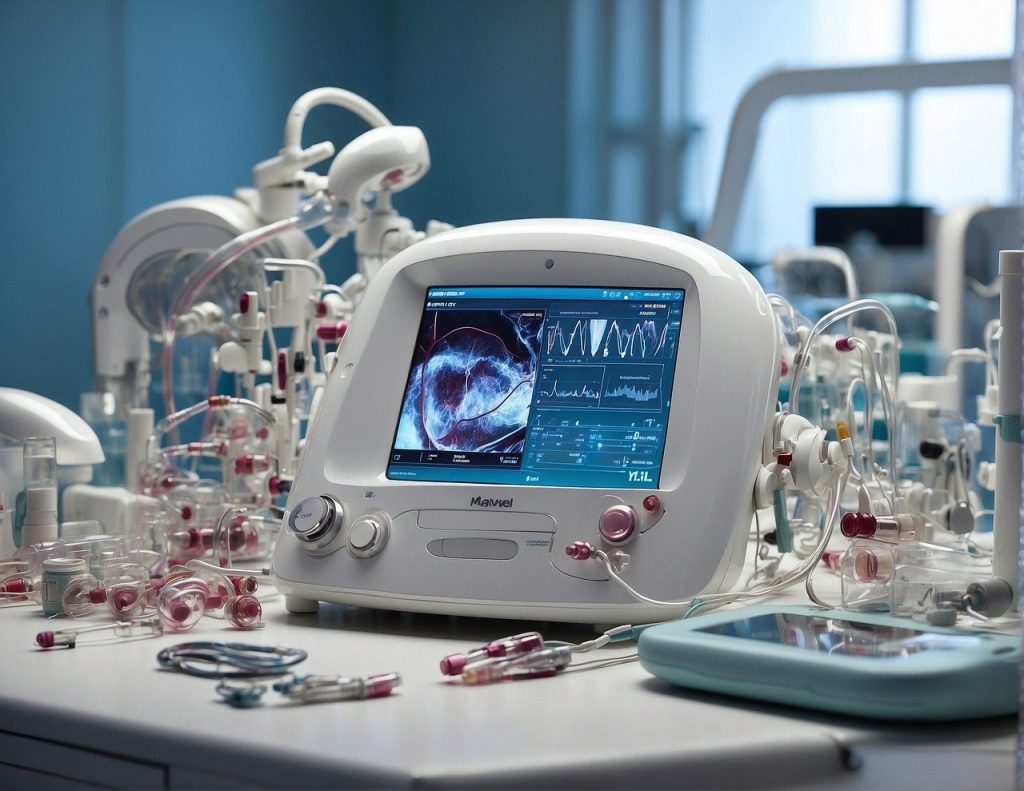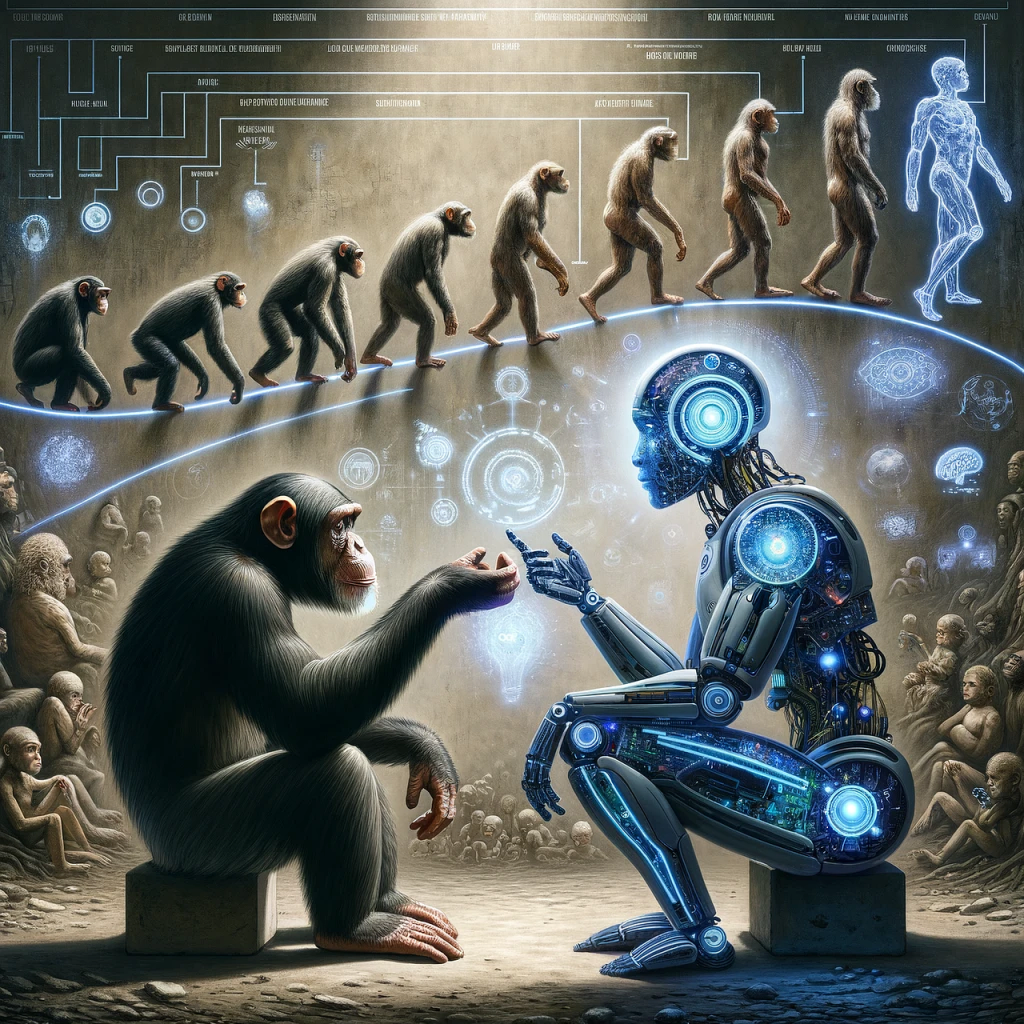Introduction to AI in Healthcare

Understanding Artificial Intelligence
Artificial Intelligence (AI) is revolutionizing the healthcare industry, offering a wide range of benefits that can improve patient care, streamline processes, and enhance outcomes. In order to fully grasp the potential of AI in healthcare, it is essential to understand the basic principles and applications of this cutting-edge technology.
One of the key concepts to understand about AI is machine learning, a subset of AI that enables machines to learn from data without being explicitly programmed. This means that AI systems can analyze large amounts of data to identify patterns, make predictions, and generate insights that can inform decision-making in healthcare settings. Machine learning algorithms can be trained on various types of healthcare data, such as electronic health records, medical images, and genetic information, to support clinical decision-making and improve patient outcomes.
In addition to machine learning and NLP, AI in healthcare encompasses a wide range of applications, including predictive analytics, robotics, virtual assistants, and personalized medicine. These technologies have the potential to revolutionize the way healthcare is delivered, by enabling more accurate diagnoses, personalized treatment plans, and proactive interventions that can improve patient outcomes and reduce healthcare costs. By understanding the capabilities and limitations of AI in healthcare, healthcare professionals and organizations can make informed decisions about how to integrate these technologies into their practice and improve the quality and efficiency of patient care.
Overall, understanding artificial intelligence is essential for healthcare professionals and organizations looking to harness the power of AI to navigate the future of medicine. By learning about the principles and applications of AI in healthcare, stakeholders can leverage these technologies to improve patient care, streamline processes, and enhance outcomes. With the right knowledge and tools, the future of healthcare and AI integration holds great promise for transforming the way healthcare is delivered and improving the overall health and well-being of
patients.
Evolution of AI in Healthcare

In the rapidly evolving landscape of healthcare, artificial intelligence (AI) has become a critical tool for improving patient outcomes, streamlining processes, and advancing medical research. The evolution of AI in healthcare has been marked by significant advancements in technology, data analytics, and machine learning algorithms. As we look towards the future of medicine, it is essential to understand how AI is transforming the way healthcare is delivered and how it is poised to revolutionize the industry.
One of the key drivers of the evolution of AI in healthcare is the increasing availability of vast amounts of data. With the proliferation of electronic health records, wearable devices, and genomic sequencing technologies, healthcare providers now have access to more data than ever before. AI algorithms can analyze this data to identify patterns, predict outcomes, and personalize treatment plans for individual patients. This data-driven approach to healthcare is revolutionizing the way medical decisions are made, leading to more precise diagnoses and more effective
treatments.
Another important factor shaping the evolution of AI in healthcare is the development of advanced machine learning algorithms. These algorithms can process and analyze data at speeds and scales that far exceed human capabilities. By leveraging these algorithms, healthcare providers can identify trends, detect anomalies, and make predictions in real-time. This enables them to deliver more timely and accurate care to patients, ultimately improving outcomes and reducing costs.
As AI continues to advance in healthcare, we are seeing an increasing focus on the integration of AI technologies into clinical practice. From diagnostic imaging to predictive analytics to robotic surgery, AI is being used to augment the skills and expertise of healthcare providers, enabling them to deliver more personalized and effective care. This integration of AI into healthcare is leading to a paradigm shift in the way medicine is practiced, with the potential to transform the industry in profound ways.
In conclusion, the evolution of AI in healthcare is paving the way for a future where medicine is more data-driven, personalized, and efficient. By harnessing the power of AI technologies, healthcare providers can improve patient outcomes, reduce costs, and advance medical research. As we navigate the future of healthcare and AI integration, it is essential to stay informed about the latest advancements in AI technologies and their potential impact on the healthcare industry. By embracing AI as a tool for innovation and transformation, we can create a healthcare system that is more effective, efficient, and patient-centered.
Importance of AI in Medicine
In today’s rapidly evolving healthcare landscape, the integration of artificial intelligence (AI) has become increasingly important. AI has the potential to revolutionize the way we approach medicine, from diagnosis to treatment to patient care. This section will explore the importance of AI in medicine and how it is shaping the future of healthcare.
One of the key benefits of AI in medicine is its ability to analyze vast amounts of data quickly and efficiently. By utilizing machine learning algorithms, AI can identify patterns and trends in patient data that may not be immediately apparent to human physicians. This can lead to earlier and more accurate diagnoses, as well as more personalized treatment plans tailored to each individual patient’s needs.
Another important aspect of AI in medicine is its potential to improve patient outcomes. By leveraging AI tools such as predictive analytics and decision support systems, healthcare providers can make more informed decisions about patient care. This can result in better treatment outcomes, reduced medical errors, and ultimately, improved patient satisfaction.
AI also has the potential to increase efficiency in healthcare delivery. By automating routine tasks such as appointment scheduling, billing, and data entry, AI can free up healthcare providers to focus on more complex and critical aspects of patient care. This can lead to faster, more streamlined healthcare delivery, which is especially important in today’s fast-paced healthcare environment.
Overall, the importance of AI in medicine cannot be overstated. From improving diagnosis and treatment to enhancing patient outcomes and increasing efficiency in healthcare delivery, AI has the potential to revolutionize the way we approach healthcare. As we continue to navigate the future of medicine, it is essential that we embrace the potential of AI to drive innovation and improvement in healthcare for all.


2 Responses
This is such a detailed and insightful post. I really appreciate the effort you put into explaining everything so clearly.
Thank you very much for the feedback. We really appreciate it. If there is any topic like these that you might want to know more details about, please let us know and we will get these topics done for you